Aug 19, 2025
Author:Sam Wonder
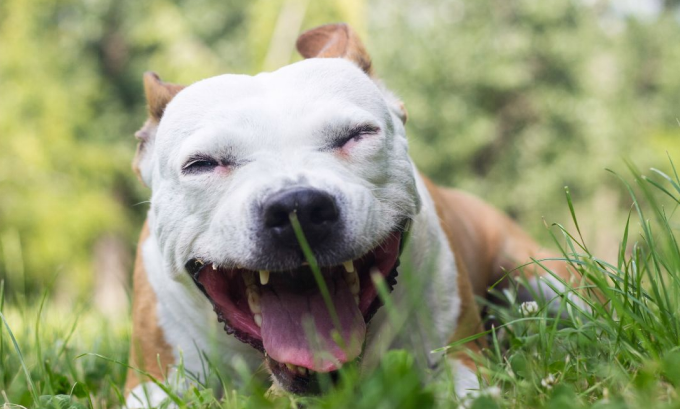
That persistent honking cough keeping you up at night? Your dog sounds like a goose, and you're wondering if that trip to the dog park was worth it. Here's the thing — kennel cough hits fast, spreads faster, and makes both you and your pup absolutely miserable.
But wait. Before you panic about vet bills or worry your dog needs immediate antibiotics, most cases actually clear up with simple home care. We're talking about treatments you can start tonight. With stuff you probably already have lying around.
Here's what we'll cover:
● Home remedies that actually work — from honey doses to steam therapy, plus when these treatments aren't enough
● Prevention strategies and early warning signs — spotting symptoms before they worsen and keeping your other pets safe
Keep reading if you want to turn that harsh cough into tail wags again. We'll show you exactly when home treatment works. And when it's time to call the vet.

Your dog's hacking away, and you need relief now. Good news, though? Several home treatments can ease kennel cough symptoms while your pup's immune system does its thing. These remedies work best for mild cases — you know, where your dog stays active and keeps eating normally.
Raw honey? It does way more than sweeten your tea. Coats your dog's throat. Reduces inflammation. And those antibacterial properties actually fight secondary infections too.
Dosing guidelines by weight:
● Small dogs (under 25 lbs): ½ teaspoon, 2–3 times a day
● Medium dogs (25–50 lbs): 1 teaspoon, 2–3 times a day
● Large dogs (over 50 lbs): 1 tablespoon, 2–3 times a day
You can give honey straight from the spoon. Or mix it with warm water if your dog's being fussy. Manuka honey works best — but honestly? Any raw, unpasteurized honey helps. Just skip this remedy for diabetic dogs or puppies under one year. Their systems can't handle the natural sugars. And there's potential bacteria to worry about.
Steam loosens mucus, soothes those irritated airways. No medication needed. You've got two easy options here, both work equally well.
● Bathroom steam session: Run hot water in your shower. Door closed. Then sit with your dog in that steamy bathroom (not actually IN the shower, obviously) for about 10-15 minutes. Do this 2-3 times daily. Bring a book — your dog needs you there.
● Humidifier method: Set a cool-mist humidifier close to your dog’s favorite crash spot. Let it run all day. Especially at night. But here’s the thing — scrub mold every three days.
Pro tip that actually works: Add one drop of eucalyptus oil to the bathroom. Never directly on your dog, though. Just one drop. Dogs have crazy sensitive noses.
Where does your dog rest? It matters just as much as what treatments you give. A calm, controlled environment speeds healing. Prevents the cough from getting worse, too.
Temperature and air quality basics:
● Keep rooms between 68-72°F
● Get rid of air fresheners, candles, and cleaning product smells
● Open windows for 10 minutes twice daily (if weather permits)
● Use HEPA filters if you've got them
Stress triggers coughing fits — who knew, right? Move your dog's bed somewhere quiet. Away from foot traffic. Multiple pets? Consider temporary separation. Excited play makes coughing way worse.
Dehydration thickens mucus. Prolongs recovery. But sick dogs? They often ignore their water bowls completely. These tricks get fluids into even the most reluctant drinkers:
● Bone broth ice cubes: Freeze low-sodium chicken broth in ice cube trays. Dogs lick them slowly — hydration plus soothing coldness on their throat
● Water additives: Mix a tablespoon of low-sodium chicken broth into regular water
● Wet food transition: Switch to canned food temporarily. Or just add warm water to kibble
Monitor water intake closely, though. Dogs should drink roughly one ounce per pound of body weight daily. Track it. Dehydration sneaks up faster than you'd think.
Certain supplements boost immune response. Reduce cough severity. Start these at the first sign — seriously, the very first sign — of symptoms.
● Vitamin C strengthens immune function. Dogs produce their own, sure, but extra helps during illness. Give 250mg for small dogs. 500mg for medium. 750mg for large breeds. Split the doses — morning and evening.
● Probiotics support gut health. That's where 70% of immune function happens, by the way. Use dog-specific formulas. Human probiotics? Different bacterial strains entirely. Follow package dosing. Or just give one capsule daily mixed with food.
● Coconut oil — antimicrobial benefits and all that. Start with ¼ teaspoon for small dogs. Half a teaspoon for medium ones. Full teaspoon for large dogs. Mix with food once daily. But watch out — too much causes diarrhea. Increase gradually.
Some symptoms? They’re stop-everything-and-call-the-vet territory. Forget the home remedies. Get help fast if you see:
● Struggling to breathe or gums turning blue
● No eating at all for more than 24 hours
● Total energy crash, even collapse
● Coughing blood or thick green/yellow mucus
● Fever pushing past 103°F
Young puppies, senior dogs, and those with existing health conditions — they need professional care sooner. Their immune systems just can't fight infections as effectively.
The 48-hour rule: Most dogs show improvement within two days of starting home treatment. No progress by day three? Time for professional help. Kennel cough sometimes leads to pneumonia. Which needs antibiotics.
Watch for worsening symptoms. Even if an initial improvement happens. Secondary bacterial infections? They sneak in when the immune system's busy fighting the primary virus. That mild cough can turn serious overnight — trust me on this.
Your vet might prescribe cough suppressants. Or antibiotics. Depends on severity. Don't feel like you've failed by seeking help, though. Some cases simply need stronger intervention. The goal stays the same: getting your dog comfortable and healthy again.
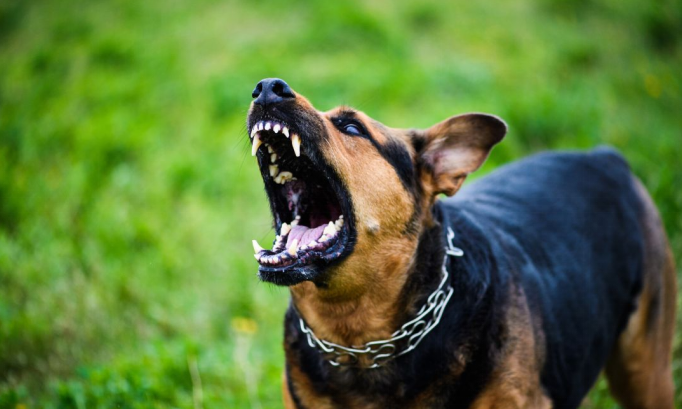
Kennel cough spreads through the air like wildfire. One infected dog at the park. Suddenly, half the neighborhood pack starts coughing. But you can protect your pup — smart prevention tactics, quick action when symptoms first appear.
The sooner you catch kennel cough? The easier it treats. Most owners miss these subtle first signs. They show up 3-10 days after exposure.
Day 1-2 warning signals:
● Occasional dry cough, sounds forced
● Clear nasal discharge (just a drop or two, though)
● Slight decrease in play energy
● Eating normally but drinking more water
Day 3-4 progression markers:
● Coughing fits after excitement, exercise
● Gagging or retching after coughs
● Watery eyes developing
● Mild fever (102.5-103°F)
That distinctive honking cough? Usually appears by day five. By then, your dog's already been contagious for days. Early detection means starting treatment before the worst symptoms even hit.
Got more than one furry friend? Kennel cough races through multi-pet homes. Unless you act fast. Isolation works — but you need a solid game plan here.
Immediate isolation protocol:
1. Move the sick dog to a separate room. Their own food, water, and toys
2. Use different clothing when handling each pet
3. Wash hands between interactions (soap and water, 20 seconds minimum)
4. Feed healthy pets first. Sick ones last
5. No shared toys, blankets, or bowls until two weeks post-recovery
Keep healthy pets occupied during isolation. Bored dogs get stressed. And stress? It weakens the immune system. Puzzle toys, extra training sessions, and longer walks — they help maintain normalcy.
Steady hydration keeps those respiratory defenses ready. Dogs with water always within reach? They bounce back from infections better than those who sip here and there.
Clean, fresh water makes a difference. Bacteria multiply in standing water. Adds unnecessary challenges to your dog's immune system. This becomes especially critical during kennel cough season. Spring and fall, typically.
For households serious about pet health, the WOpet Basin Pet Water Fountain solves multiple hydration challenges. The continuous circulation? Keeps water fresh. Multi-stage filtration removes impurities that harbor bacteria. Large dogs actually drink more when water moves — triggers their natural instinct for fresh sources. Plus, the basin design accommodates multiple pets drinking simultaneously. Perfect when you're managing both healthy and recovering dogs. Those who need separate water sources.
Change fountain filters monthly during illness periods. Regular maintenance prevents bacterial buildup. It could reinfect recovering pets. Or spread to healthy ones.
The Bordetella vaccine reduces kennel cough severity. But doesn't guarantee complete protection. Think of it like the flu shot for humans. You might still get sick. Symptoms stay milder, though.
Vaccination schedule basics:
● Puppies: First dose at 8 weeks, booster at 12 weeks
● Adult dogs: Annual boosters (every 6 months for high-risk dogs)
● Pre-boarding: Vaccinate 2 weeks before kennel stays
Some boarding facilities require vaccination proof. Call ahead. Many need records showing vaccination within the past six months. Not just annually.
Your home setup? Affects infection risk more than you'd think. Small changes create big protection barriers.
Air quality improvements:
● Install HEPA filters in main living areas
● Increase ventilation — crack windows daily
● Run exhaust fans during and after cooking
● Avoid aerosol sprays near pet areas
Surface sanitization schedule:
● Daily: Food/water bowls, favorite toys
● Weekly: Bedding, collars, leashes
● After illness: Deep clean everything. Pet-safe disinfectant
Temperature swings stress the immune system. Keep indoor temperatures steady. Especially during season changes. When kennel cough peaks.
Strong dogs resist infections better. These daily habits? They build robust immune defenses year-round.
● Exercise intelligence: Moderate activity boosts immunity. Overexertion weakens it. Aim for two 20-30 minute walks. Rather than one exhausting hour. Skip dog parks during outbreak periods. Socialization's great and all. But not worth the risk.
● Nutrition tweaks matter: Good food fuels the immune system. Hunt for formulas rich in omega-3 fatty acids. Antioxidants. Prebiotics. Toss in fresh veggies — carrots, green beans. A few extra vitamins never hurt.
● Stress reduction: Anxious dogs get sick more easily. Maintain consistent routines. Provide safe spaces for alone time. Address anxiety triggers before they become chronic stressors.
Pull everything together. Into a practical prevention system. Write this down. Stick it on your fridge.
Monthly tasks:
● Check vaccination records
● Replace water fountain filters
● Deep clean food and water stations
● Evaluate your dog's stress levels
During outbreak seasons:
● Avoid dog parks, pet stores
● Wipe paws after walks
● Monitor local veterinary s
● Stock up on honey, supplements
If exposure happens:
● Start immune supplements immediately
● Increase cleaning frequency
● Watch for symptoms — 14 days
● Separate pets preemptively
Prevention beats treatment. Every single time. These strategies take effort upfront. But save stress, money, and sleepless nights later.
You've got the tools to tackle kennel cough at home. Stop it before it starts. The right combination — early detection, proven remedies, and prevention habits — keeps your pup healthy. Your vet bills are low, too.
● Catch symptoms early — watch for subtle signs like extra water drinking, mild energy drops before that honking cough appears
● Home remedies work — honey, steam therapy, and proper hydration ease symptoms in mild cases. Within 48 hours
● Prevention beats treatment — consistent vaccination, smart hydration systems, and environmental control. They stop infections before they start
● Know your limits — breathing troubles, bloody cough, no improvement after three days? That means veterinary care. No more home remedies
Keeping your pet healthy? Way simpler with the right setup. WOpet’s smart feeders and fountains let you watch eating patterns, keep water topped up, and even check their behavior from afar. That’s how you catch trouble early — even when you’re nowhere near the house.
Label:
Popular Post

What to Feed a Sick Dog With No Appetite? [2025 Guide]
May 16, 2023
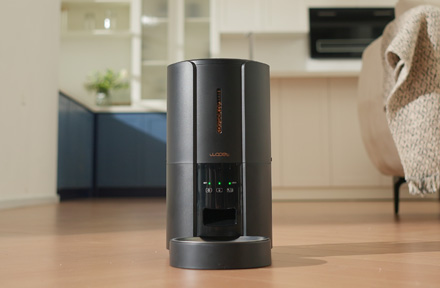
Troubleshooting Common Issues with Automatic Pet Feeders: Tips & Tricks for Pet Owners
Oct 26, 2023
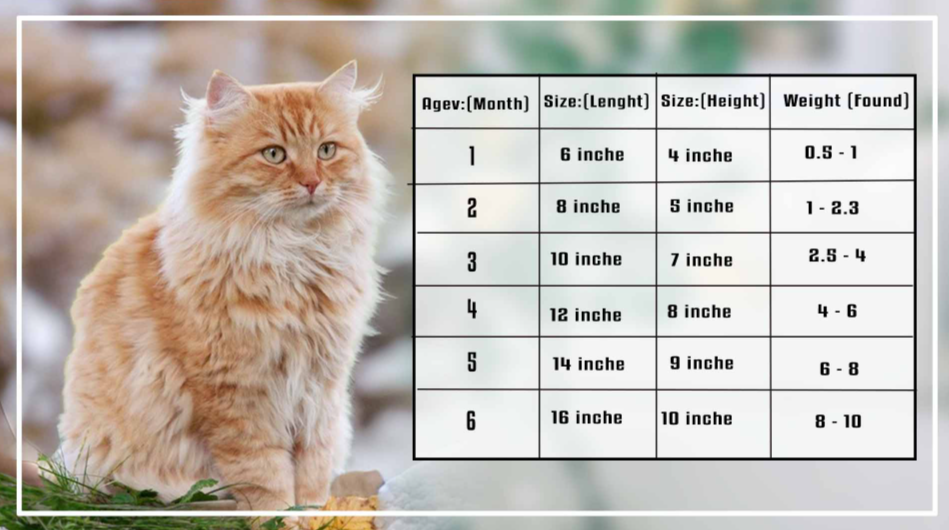
What is a standard Cat Weight chart by age Kg?
Mar 19, 2025

Why Does My Cat Cough After Drinking Water? 8 Potential Reasons
Mar 13, 2023
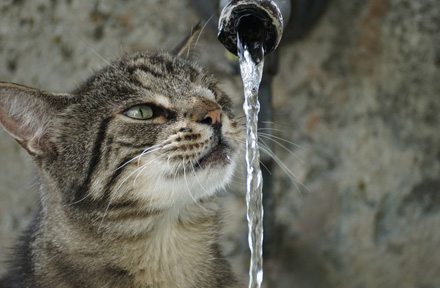
Why is My Cat Throwing up Water? Top 5 Causes Here
Feb 08, 2023
$109.99
$129.99
Copyright © 2025 WOPET. All Rights Reserved.